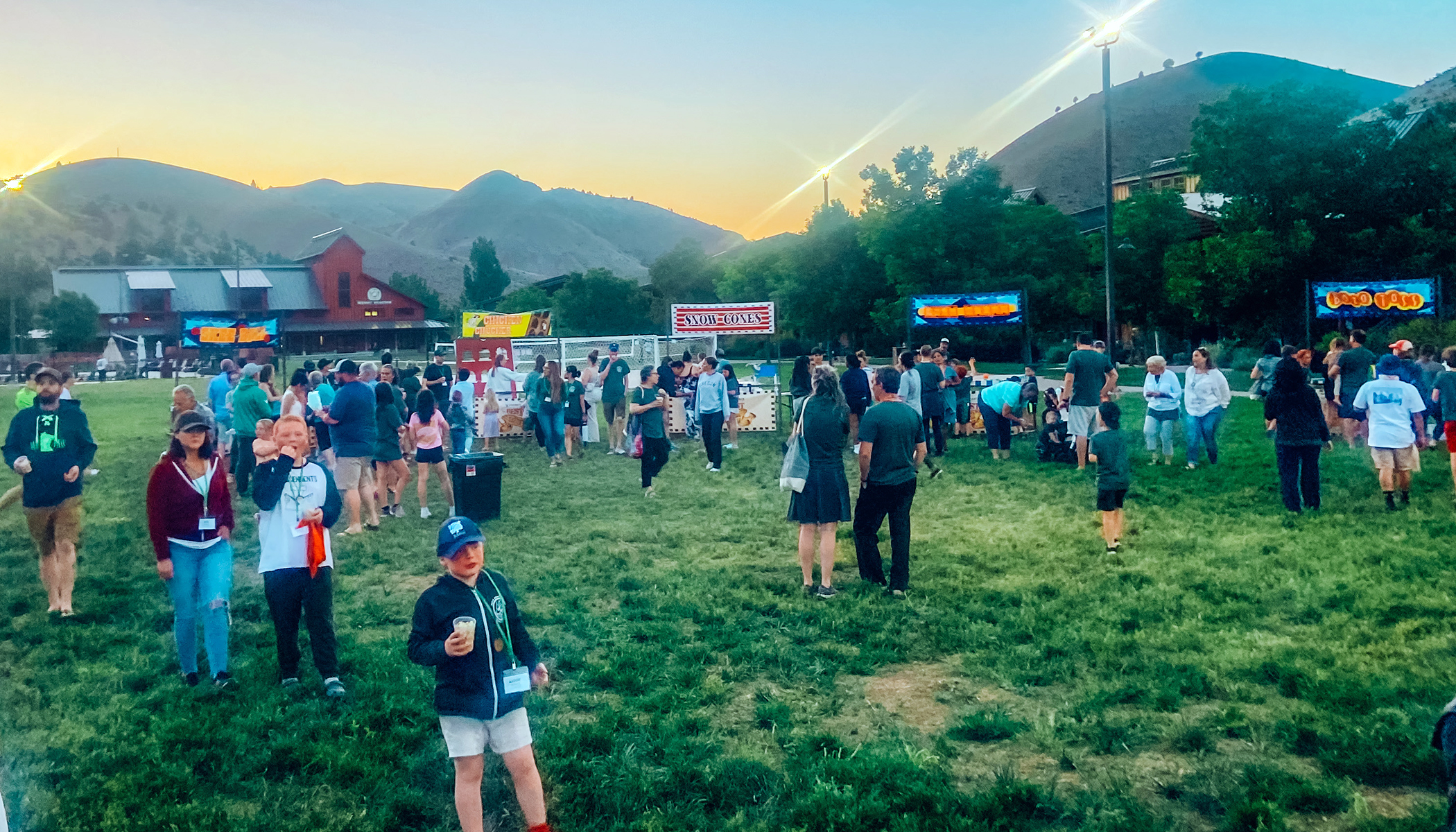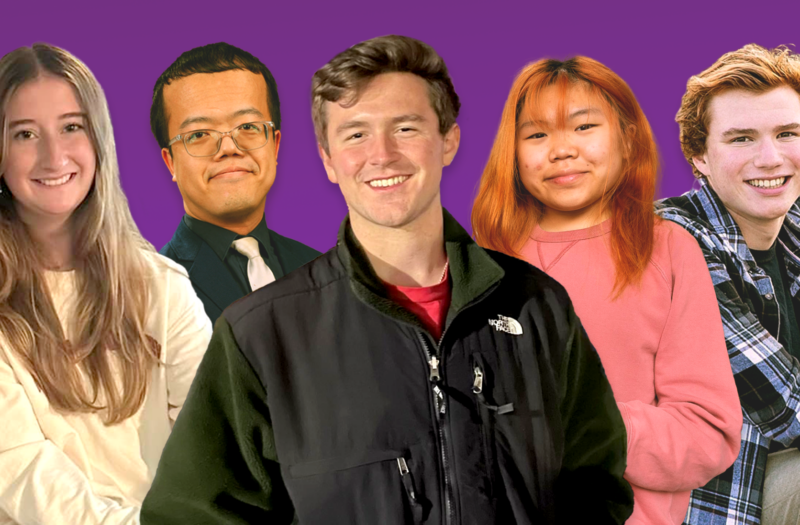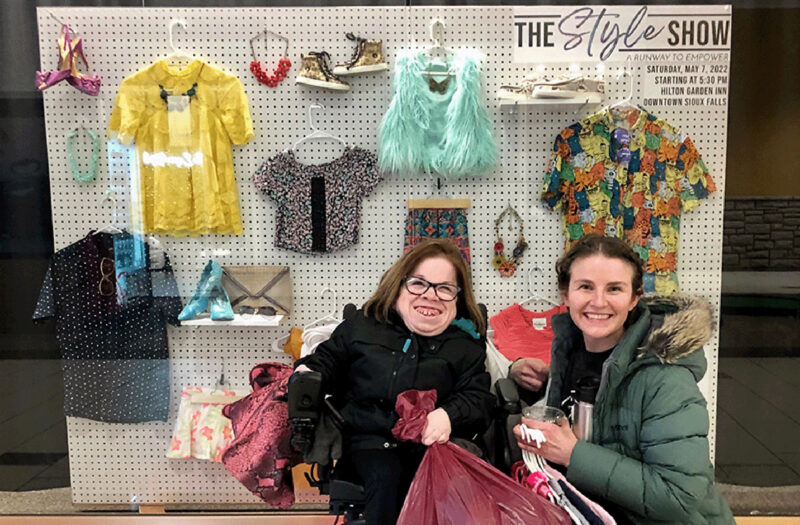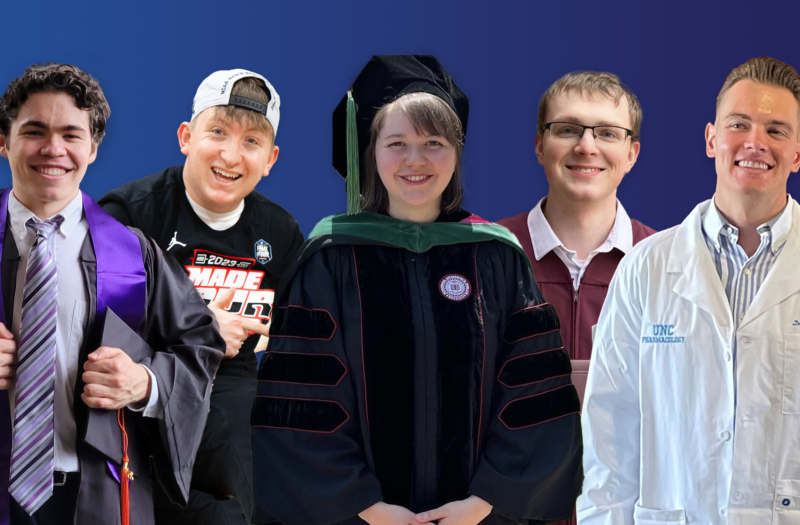Family Camp Helps Create Community, Support Networks for People with PKU
May 29, 2024
When Jim Parris thinks back to the first several years of raising a child with phenylketonuria (PKU) in a remote part of Idaho, what stands out most is the lack of resources to help navigate the challenges of a rare metabolic condition.
In 2007, his daughter, Alex, was the only baby in all of Idaho born with PKU – a rare genetic condition characterized by an enzyme deficiency that inhibits the body’s ability to break down an amino acid called phenylalanine (Phe) found in all foods with protein. Jim recalls the lone nutritionist they encountered did not know enough about PKU to provide reliable guidance on the restricted diet Alex must consume to limit the cognitive issues associated with the condition.
A turning point was when the family discovered a PKU family camp in Antelope, Oregon when Alex was 8 years old.
“We had just been floating in the wind, without any real resources,” Jim says. “Our real first education, and the first time we experienced the uplifting feeling of being part of a community, was when we finally got to camp.”
The camp, flok Family Camp West, is now one of several across the United States focused on bringing people with PKU and other rare metabolic conditions together – sometimes across great distances – to create a sense of community and share resources. In its 21st year, flok Family Camp continues to expand, and in all, organizations focused on PKU and other rare metabolic conditions now offer camps in eight states across the country.
“Community is so important for all of us, but particularly for those facing the challenges of living with a rare condition,” says Kate Delaney, Senior Director, Patient Affairs at BioMarin. “We’re proud to support flok Family Camp and several others that have filled a void by bringing people in the PKU community together.”
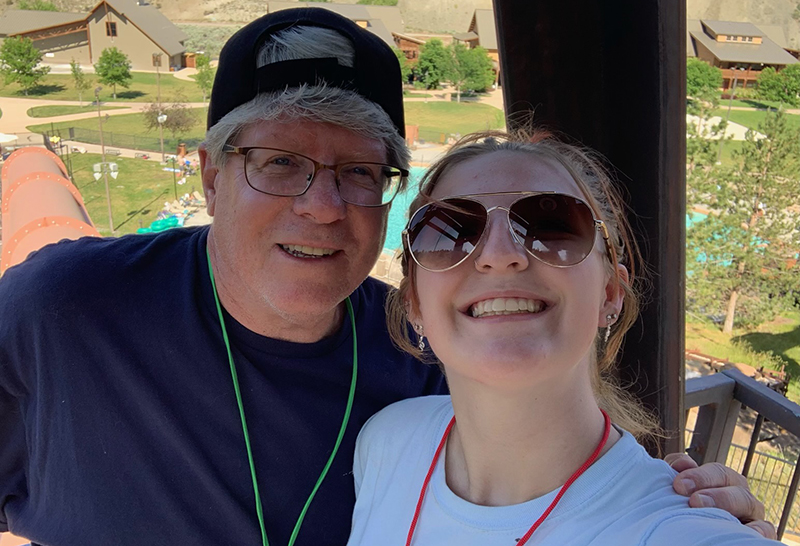
Jim (left) and Alex Parris, along with the rest of their family, have been regulars at flok Family Camp West since discovering it when Alex was 8 years old.
Attendees at flok Family Camp enjoy a number of traditional camp activities, such as water slides, arts and crafts, and a talent show, as well as educational sessions where attendees learn about the latest updates in metabolic science and care. Chefs provide campers with creative low-protein food options and families share favorite recipes to bring home. Some of the dishes can be found on low-protein recipe websites like CookForLove.org, such as Boston Faked Beans, Sweet Potato Bacon and hot-dog-inspired Carrot Dogs.
Delicious low-protein recipes notwithstanding, Alex, now 16, says the most meaningful benefit of discovering the camp was no longer feeling like she was alone in facing PKU.
“I never met anyone else with PKU until I went to camp that first time and it was so inspiring to meet other kids and grown-ups leading normal lives with PKU,” says Alex. “I met a girl my age that first time and she is probably my best friend. We have a group chat with some other friends from camp and just having those connections is amazing.”
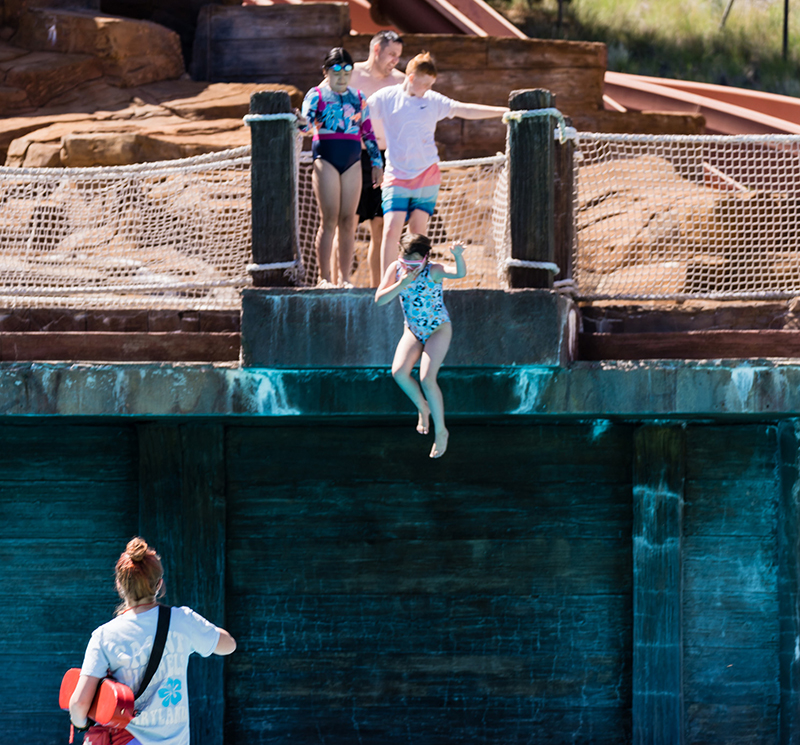
Alex (lower left) volunteers as a lifeguard at the camp’s pools and water slides.
Expanding on a Legacy of Bringing the PKU Community Together
The origins of flok Family Camp date back to 2003, when it was originally coordinated by PKU Northwest, a nonprofit focused on supporting the PKU community in Washington, Oregon and Idaho.
Jen Christenson recalls making the three-hour drive from Portland in the camp’s second year. Twenty-eight years old and single at the time, she enjoyed meeting the families, one of which also lived in Portland.
“I ended up babysitting their kids because they were like, ‘We don’t really trust other people with our son, but you have PKU just like he does, so we trust you,’” recalls Jen, who now attends family camp annually with her husband and two sons.
The flok team took the camp over during the COVID pandemic, leveraging its online expertise (the organization provides a Phe-tracking website and app) to create a virtual camp attended by hundreds of people from as far away as New Zealand. The two organizations agreed that flok should take over operations of the family camp when it returned to the in-person format in 2022, in addition to continuing the virtual camp.
The team at flok is working to further expand the impact of its camp program. This year the organization is offering its first East Coast camp in September. Another addition is an adult retreat in Oregon, held in the days leading up to family camp.
Sarah Chamberlin, Founder and Executive Director of flok and the mother of a 10-year-old daughter with PKU, says the adult retreat came about organically following a spontaneous late-night conversation at the 2023 family camp.
“A bunch of the adults were talking about the struggles they faced growing up with a metabolic condition when there really wasn’t as much hope, and challenges they’re experiencing now as they age,” Sarah recalls. “We said ‘Why don’t we do something about this?’”
Jen was among the adults in that late-night conversation and will be at the retreat.
“Connecting with the other adults and being in a space where we can be totally vulnerable with each other is just going to be so good,” she says.
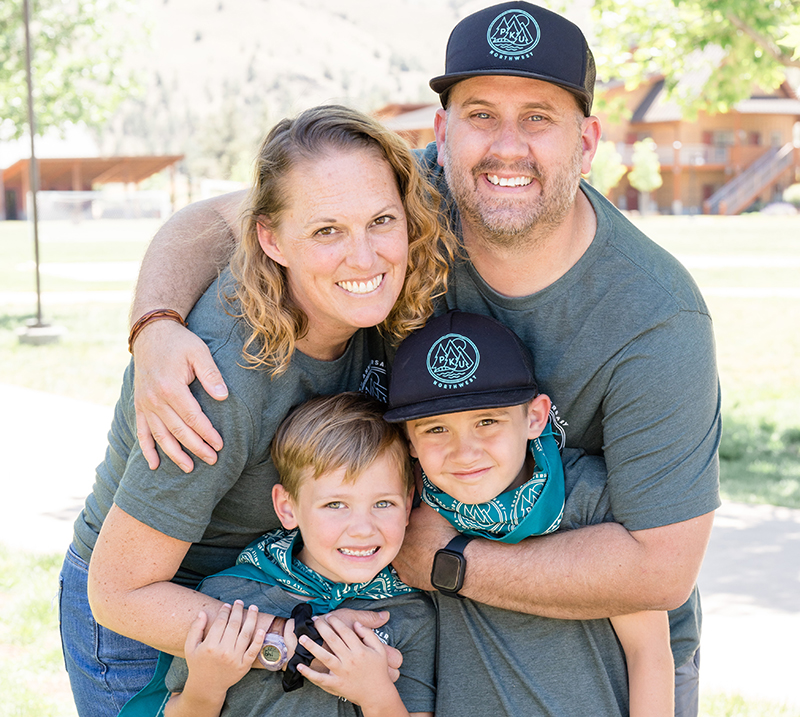
Jen Christenson, pictured with her husband, Blaine, and sons, Emery (left) and Owen, first attended flok Family Camp West more than 20 years ago and now returns annually with her family.
Reconnecting at Camp
Toby Korolyk, 17, began attending in 2010, and his family will be among the more than 280 people expected this year. He says he’s looking forward to the food, water slides and reconnecting with friends.
“It has always felt really good to have people around me I could relate to,” Toby says. “For a while I was having dreams about being at camp pretty much every other week because I just love the place so much.”
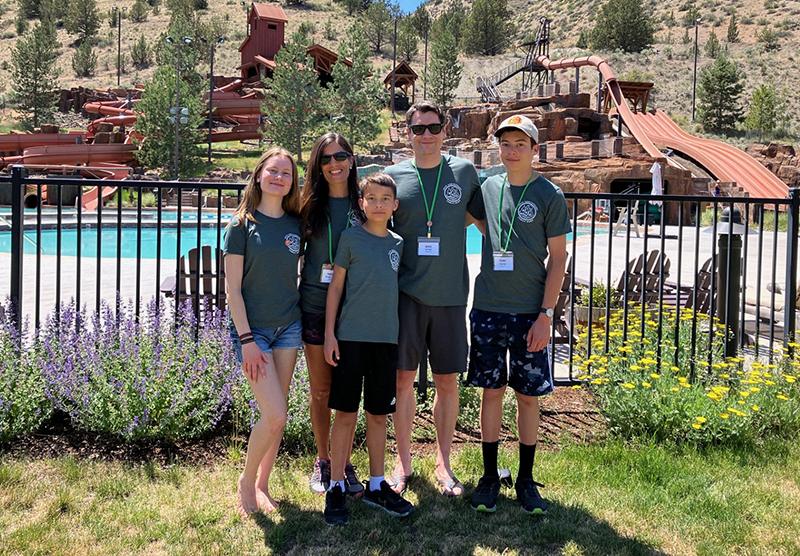
Toby Korolyk (right) has been attending flok Family Camp West with his family since 2010.
In addition to the usual activities, educational sessions this year will include topics such as how to manage playing sports while living with a metabolic condition, understanding clinical trials and ensuring a smooth transition of care from adolescence to adulthood.
Alex is also attending again this year and says she looks forward to seeing some of the friends from her group chat who help get her through her most daunting days.
“No matter what happens with my PKU in the future, I’ll forever be going to this camp,” says Alex. “I just can’t say enough about how much I love it and what it has meant to me.”
Learn more about camps for people living with and managing PKU and other metabolic conditions offered throughout the United States, some of which have received grants from BioMarin’s charitable donation program:
- flok Family Camp West (Oregon)
- flok Family Camp East (New Hampshire)
- Camp Knot a Phe (Arizona)
- Emory Metabolic Camp (Georgia)
- Georgia Camp Connect (Georgia)
- Illinois Low-Protein Family Camp (Illinois)
- Camp Phever (Texas)
- IPAD Family Day (Utah)
- Camp Huber (Virginia)
